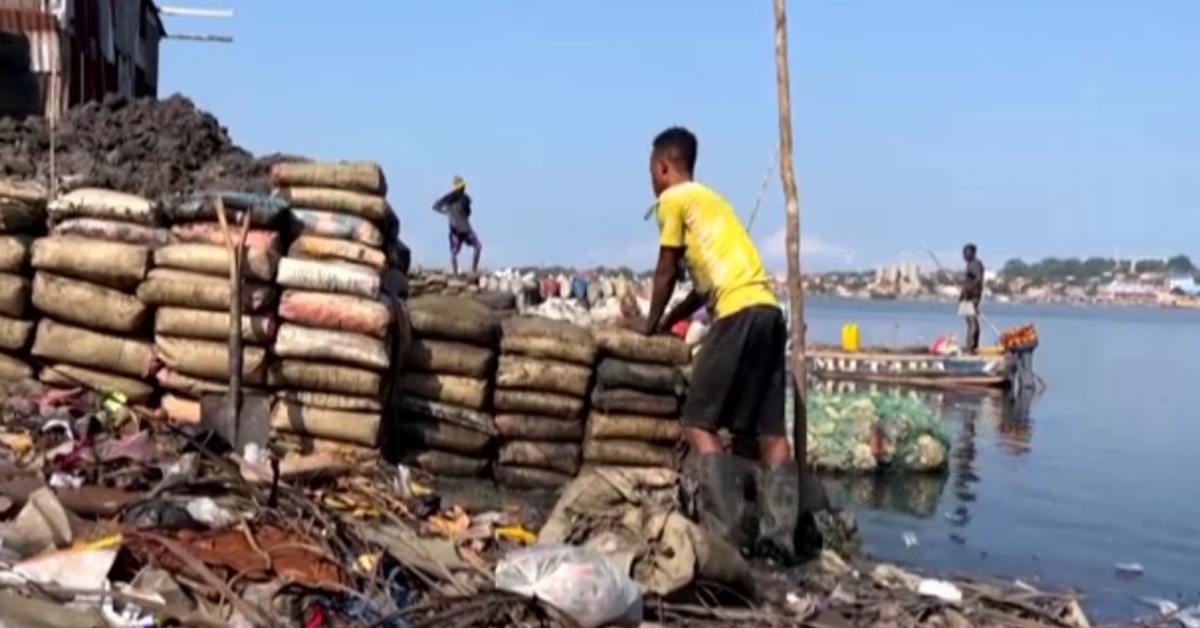Along the mountain slopes and the Atlantic Ocean, Sierra Leone’s capital Freetown is struggling to accommodate its growing population, and residents are running out of space to build their homes.
Faced with the challenges of housing, the impoverished residents have found a solution: building on the sea. This is called ‘banking’, an illegal method that allows construction on the water. This involves piling up layers of tyres, rubbish, and sacks of earth on the water’s edge, packing the ballast with mud, and then building their homes on top, as reported by African News.
As the population in the capital grows, it’s estimated that one-third of its 1.5 million residents now live in slums, according to a report by African News.
“It’s here I’ve built my shack house because I don’t have the opportunity to buy and build one elsewhere. It’s here I’m managing my life with no problem,” said Lamrana Bah, a resident of Cockle Bay, speaking to African News.
The Federation of Urban and Rural Poor (FEDURP), a community-based organisation, estimates some 198,000 people live in its seafront settlements.
But the illegal construction methods they are using come with great risks.
“We’ve witnessed over 15 fire incidents leading to the loss of lives and houses burnt down. And the flooding occurs during the rains, and during the dry season most of the drainage canals are blocked with garbage,” said Nancy Sesay, a resident of Susan’s Bay, told African News.
Their unauthorised homes also face other problems ranging from lack of water and sewage systems to the lack of access roads which makes it hard for ambulances or fire trucks to arrive in emergencies.
Freetown’s population mushroomed during the decade-long civil war when the city was seen as a haven.
“So most people migrated from the rural areas to Freetown and over time the population increased. And that had a whole lot of increased demand for housing and that resulted in people inhabiting some of those coastal settlements,” said Braima Koroma, the director of research at Sierra Leone’s Urban Research Centre, in an Interview with African News.
With rising sea levels due to climate change expected to force millions of people to move further inland, Freetown’s mayor says the solution is to create more economically attractive destinations for people outside the city.




 Post a comment
Post a comment









